The Saturday Read: What the streets demand
Inside: Knausgaard, Lear, Hockney, AI, Covid, and Israel-Gaza in half a dozen stories.
Good morning, and welcome to the Saturday Read, the New Statesman’s weekly guide to the best writing on ideas, politics, books and culture. This is Harry, along with Will and Pippa.
It’s been a big week. Ukraine’s commander-in-chief conceded the failure of his country’s summer counteroffensive (I don’t write that gladly). “Just like in the first world war we have reached the level of technology that puts us into a stalemate,” he told the Economist. A Israel-Gaza ceasefire debate raged in the UK and across the world. Rishi Sunak – you know, the prime minister – spent the week ignoring it to serve as Elon Musk’s latest sidekick. And the Covid inquiry was full of revelation.
If this email cuts off midway, you can click here to read it online. If these pieces intrigue, perhaps you’d like to try a trial subscription to the NS. Read three free articles after registering on our site. A digital subscription is only 95p a week. And if you already subscribe to the NS, thank you for being a reader of ours.
1—“The party leader gets how dangerous a moment this could be for him.”
Our political editor, Andrew Marr, launched a broadside at Labour this week. Labour councillors and MPs are revolting over Keir Starmer’s leadership. Andrew explains why this crisis is dangerous for the party, a judgement that earned the ire of no less an authority than Lord Mandelson on ITV’s absurd political chat show Peston. WL
Yet this is a crisis for Starmer, not for Rishi Sunak. A few prominent Muslim voices have disturbed Conservative unity, Sayeeda Warsi most notably; the Peterborough MP Paul Bristow lost his government job for supporting a ceasefire. But this is not a dilemma equally felt by the main parties, because of the greater importance to Labour of Muslim voters. There are almost four million in England and Wales. Community leaders tell me Muslim voters used to regard Labour as “a soft way into politics” but have never been more united on any issue as they are over Gaza.
2—“Within the jihadist movement, bitter rivalries can be transcended in the pursuit of a larger cause.”
Shiraz Maher – a long-time NS contributor and senior lecturer in the international centre for the study of radicalisation at King’s College London – offers a knotty history of jihadism across the Middle East. It’s a good sort of knotty: he complexifies the simplified picture sometimes presented of the militant forces at play. HL
That sense of xenophobic conspiracy attached to any American or Israeli presence in the region has only intensified in recent years. Iraq passed a law in 2022 criminalising the normalisation of relations with Israel and any form of meeting – whether social or personal – with Israelis. Offenders are threatened with imprisonment or even the death penalty.
An Israeli-Russian doctoral student at Princeton University, Elizabeth Tsurkov, was kidnapped in Baghdad in March by an Iranian-backed militia. Despite being a prominent critic of Benjamin Netanyahu and Israel’s illegal settlements, Tsurkov disappeared during her fieldwork and has not been heard from since. Since 7 October, American bases in both Syria and Iraq have come under repeated assault, often from the groups thought to be associated with Tsurkov’s kidnapping.
3—“In the end, the levelling of Gaza also poses an opportunity.”
I interviewed Eitan Shamir, an Israeli military strategist, on how 7 October happened, Israel’s endgame in Gaza, and the prospect of a regional war. His answers surprised me. I hope they give an insight into how Israel’s security establishment sees its own actions and the months ahead. It’s a 10-min read. HL
HL: You talk optimistically about Gulf state involvement in Gaza’s future, but their reaction was initially very supportive of the Palestinian cause.
ES: Oh, come on. They’re sitting there waiting for us to crush Hamas – praying for us to crush Hamas. They’re more afraid that Israel is going to miss the opportunity to do so than the Israelis themselves are. Queen Rania [of Jordan] can speak about the misery of the Palestinians, and the lies of Israel. And then when she goes to her tap in her palace and she washes her face – she’s doing it with Israeli waters that we are providing her.
And she knows that her national security, in Jordan, is being kept in check only because the US is there and Israel is there. Otherwise, they would be completely run by extremists. Of course, she will say otherwise, because this is what the streets demand. The same in Egypt. You can see this too with the Saudis, who are very clear that once this is over, it wants to go on with the normalisation process.
4—“We enter another mind and so for a while take leave of our own.”
Lola Seaton reads Karl Ove Knausgaard’s The Wolves of Eternity, a prequel of sorts to his 2021 book The Morning Star, and finds that the Norwegian novelist wants not to subsume the reader in prosaic naturalism (though there’s plenty of that) but in the inner lives of his characters, their half-formed and unfinished thoughts, leaving our own behind. PB
Admiring reviewers tend to sound a note of puzzled fascination, as though a touch confounded by and wary of their enthusiasm: is it soundly literary or does Knausgaard’s “striking readability”, in the critic James Wood’s phrase, breed a less wholesome kind of compulsion? Knausgaard does not want to intrigue so much as engulf us: as a reader, he told Bookforum in 2013, “good sentences” are often “wasted on me”; he just wants “to disappear completely into the work”. In a profound essay on his former teacher Jon Fosse, author of his own absorbing Norwegian epic of interiority, Septology, Knausgaard describes Fosse’s writing as “something into which the reader vanishes”; “We ourselves dissolve when we read, and in this way we approach the other, or the world.”
5—“Rarely have I been less moved by a production than this one.”
Rachel Cooke went to see Kenneth Branagh’s King Lear, in which the actor directs himself in the titular role, and finds it bluntly abridged, callow, affectless… I could go on, but Rachel puts it far better than me. PB
Whenever Lear is on stage, there is a vacuum – a space that is gaping, dramatically speaking, and would be so, I think, even for those determined to think of Lear as a play about dementia (though I’m with Kenneth Tynan; most of the time, I regard the madness as willed). Branagh’s voice is at once highly mannered and woefully underpowered, his extended vowels, rolling r’s and misplaced emphases strongly suggestive of the kind of old-fashioned Shakespearean who wears tights (think Vincent Price in Theatre of Blood – which, to be honest, I would far rather have been watching).
6—“Private schools need to persuade parents that a privileged future can still be bought.”
What are parents really paying for when they part with thousands of pounds a year in school fees? Melissa Denes attended open days at three of England’s most exclusive institutions to find out, and asks whether, finally, revolution is coming. PB
On a warm evening in south London the families stream down sunlit lanes and through the school gates. The light is golden, the children are golden, piling out of Range Rovers with tinted windows. The families are taken two-by-two on a tour of the architect-designed, multi-award-winning campus, through the new concert hall with its vaulted ceiling and the gardens tended to National Trust standards. Afterwards they gather for tea and a chance to quiz the teachers. Many of the children know each other from prep school, their parents from their jobs in finance and the law – futures which the children will one day inherit, all being well.
7—“But who are a group of Oxford councillors to feign control over what the Israel Defense Forces do in Gaza?”
Freddie Hayward travelled to Oxford this week where the Labour Party recently lost control of the city council due to protests over the war in Gaza. The interviews he did there reveal a party in ferment, still bruised from the Corbyn era, and deep problems for the Labour leadership. WL
Six councillors who resigned that evening are planning to form the Oxford Socialist Independents, not to be confused with the Independent Group set up by two other Oxford Labour councillors who had resigned the week before. On 26 October Labour lost its majority on Oxford city council – for the first time since 2010 – after Barbara Coyne became the ninth councillor to resign. Across the country, 31 councillors have so far resigned in response to the party’s position on the conflict. Their rallying call is that Labour should demand a ceasefire. While discontent is spreading, nearly a third of the resignations have been in Oxford.
Freddie is the lead writer of our weekday political newsletter. Sign up here:
8—“He sees himself as a unique, visionary figure, a revolutionary hero like Che Guevara.”
Hassan Nasrallah has been running Hezbollah for 31 years. Will the group open up a second front in Israel’s war by invading from the north? Katie gives a sense of Nasrallah’s story here, offering detail on an issue Shamir addresses in our Weekend Interview above. HL
Hezbollah is significantly stronger now than it was in 2006. It is thought to be the world’s most heavily armed non-state actor, with an estimated arsenal of around 150,000 rockets and missiles, including precision-guided Iranian weapons that can reach much of Israel. Its forces also have recent experience of conflict in Syria, where they have been fighting alongside Bashar al-Assad’s regime since 2013.
But the political and economic situation in Lebanon is precarious… For all Nasrallah’s bombast after his last war with Israel 17 years ago, he admitted in an interview at the time that he would not have approved the raid that triggered the conflict if he had known what would follow. “If I had known on July 11… that the operation would lead to such a war, would I do it?” he said on Lebanon’s New TV in August 2006. “I say no, absolutely not.” The following month, however, he insisted that the group’s actions had simply “hastened a war that was going to happen anyway”.
9—“The plight of the Palestinian people is no more than a footnote in the region’s power play.”
Quinn Slobodian outlines the US’s “underground empire”. American hegemony may look shaky at times, but it is far more durable than many realise. WL
Farrell and Newman describe the rise over the past 50 years of what they call America’s “network imperialism”. In an era where markets were supposedly becoming ever-more disembedded from states, the authors show that the opposite was the case. The US, in particular – with China as an adept late innovator – was, in fact, cleverly devising ways to turn the apparently disordered globe-spanning infrastructures of finance, information, intellectual property and production supply chains into nooses to be held in its hand, controlling and potentially choking out any challenges to American power.
Will’s Best of the Rest
Time: Zelensky’s lonely struggle to keep Ukraine in the fight.
FT: Sam Bankman-Fried convicted of fraud over FTX collapse. Could not have happened to a nicer guy.
Foreign Affairs: AI is already at war.
BBC: Anti-Israel mob storms Dagestan airport in Russia. This is effectively a scene from Borat.
Bloomberg: Elite British schools woo India.
Ross Douthat: The Israel-Hamas war will reshape Western politics. Highly recommended.
Isabella Hammad: Recognising the stranger.
Frank Guan: On Don DeLillo.
Anonymous: Guardian colleagues make me feel unsafe at work.
Yair Netanyahu chilling through the war in Florida. Who knew that Miami Beach was the front line in the war against Hamas?
Where are all the spiders going? Straight down the plughole, hopefully.
Elsewhere on the NS
The US national security adviser, Jake Sullivan, is President Biden’s closest foreign policy aide. Robert D Kaplan examines the way Sullivan sees the world, and wonders whether forces outside his control are set to overwhelm the United States.
Anoosh visited Hastings this week to grasp the perfect storm engulfing Britain’s storied seaside town – and dozens of other councils facing bankruptcy.
Megan Nolan on Matthew Perry and the loneliness of the addict.
Rosamund Urwin reflects on the fallout from her Sunday Times investigation into Russell Brand.
Michael Prodger on David Hockney’s clumsy late style.
John le Carré’s espionage career sounds glamorous. The reality was time spent snooping on Oxford students who were a bit too into Karl Marx, explains Geoff Andrews.
Were the Noughties really the worst time to be a celebrated woman? Ann Manov explores a sordid era.
Mathis Bitton asks why the left have failed to live up to Michel Foucault’s vitalist legacy.
Sam Bankman-Fried was found guilty of fraud on all counts by a New York jury this week. Here is Sophie McBain’s long read on SBF, “effective altruism” and one of history’s biggest frauds, which Drudge turned to yesterday.
Audio long-read: The sovereign individual in Downing Street
Will put down his pen and took up a mic this week to read Quinn Slobodian’s profile of Rishi from last September. Why? Because our current prime minister this week put aside not only the Israel-Hamas conflict, but Ukraine, the cost-of-living crisis, and the Tories’ impending collapse in order to… interview Elon Musk. Sunak promised to bring integrity back to No 10. If interviewing one of the world’s most prominent dealers in disinformation isn’t dignified I don’t know what is. HL
Thank you for reading. Don’t miss out – subscribe to the New Statesman and stay up to date with everything you need: from news and analysis to comment and criticism.
Whether you’re looking for a sharp blog or a finely written feature, the New Statesman has you covered. Have a good week, and catch you next Saturday.
Thanks to Chris Bourn.










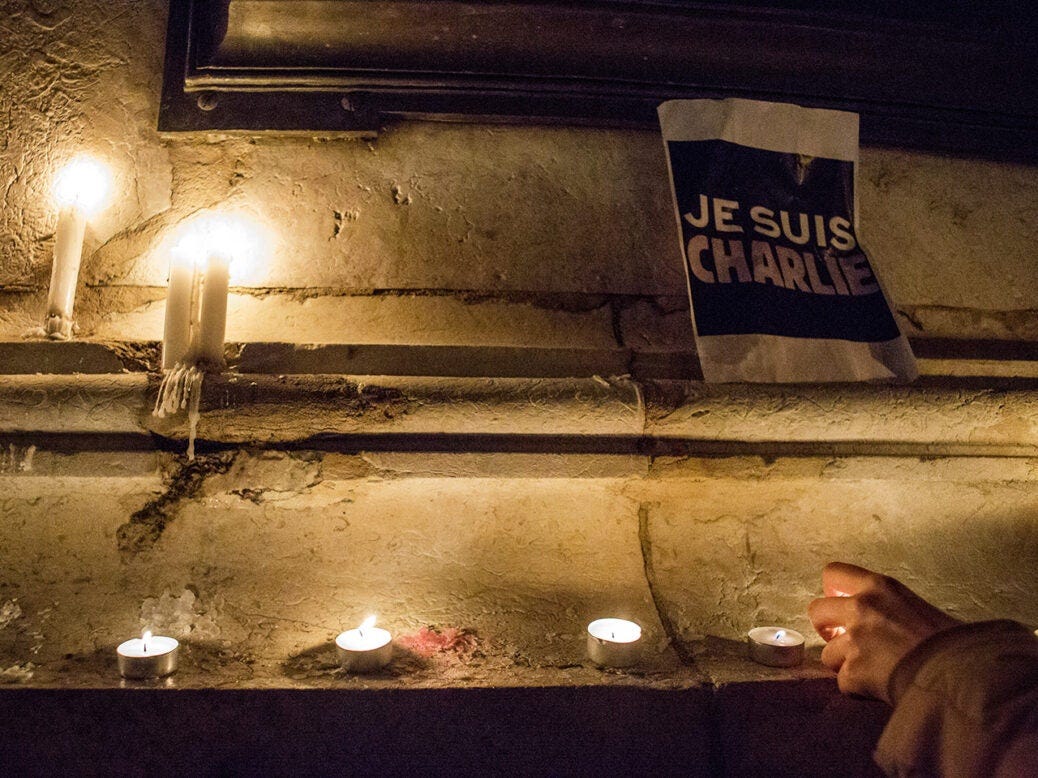

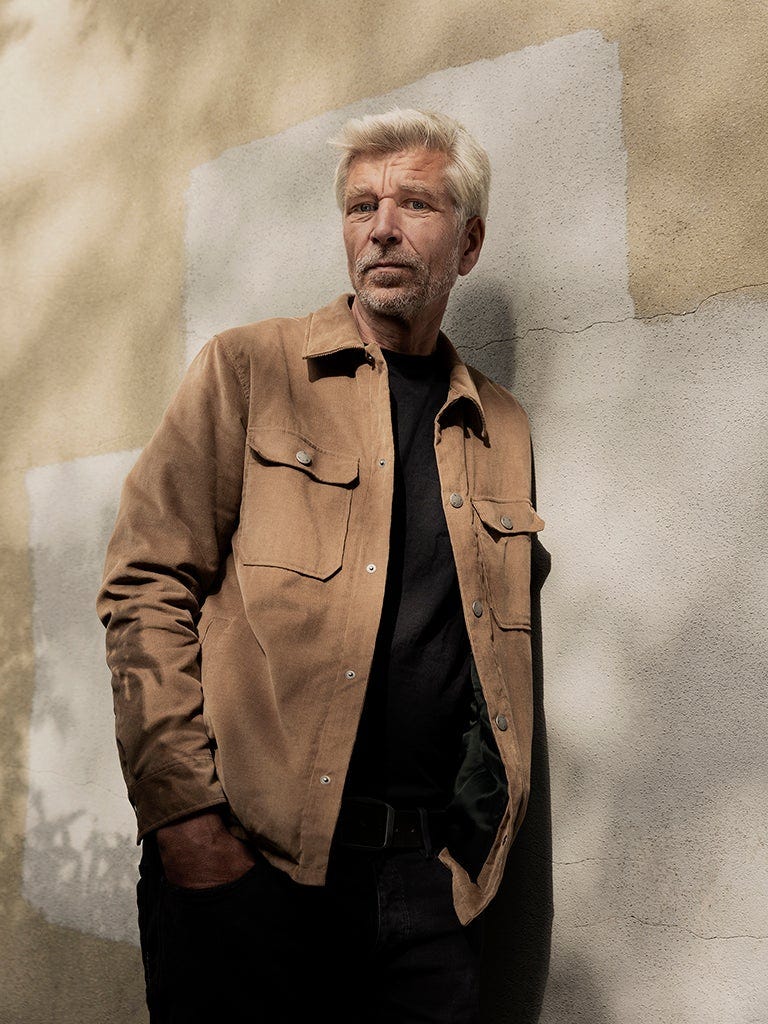


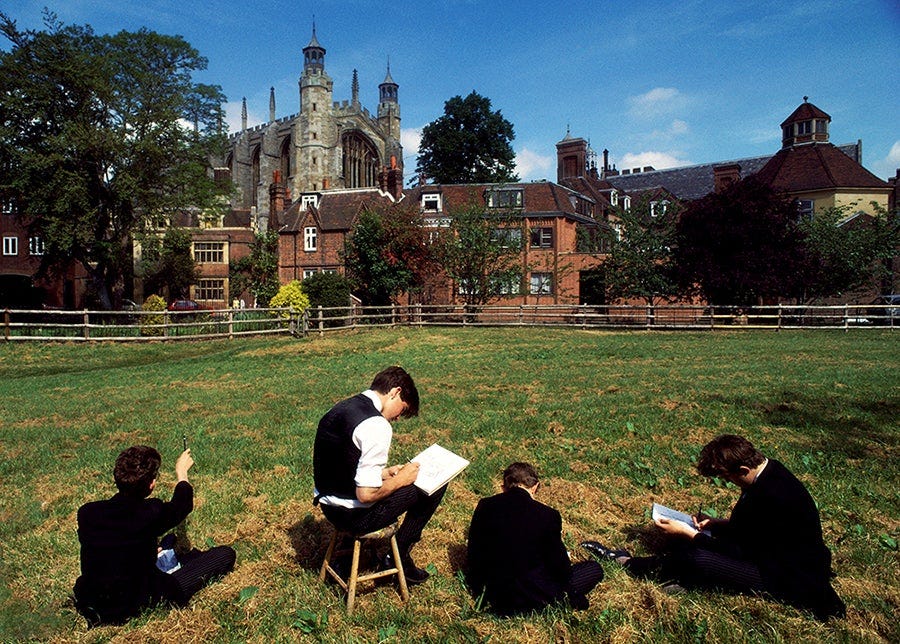

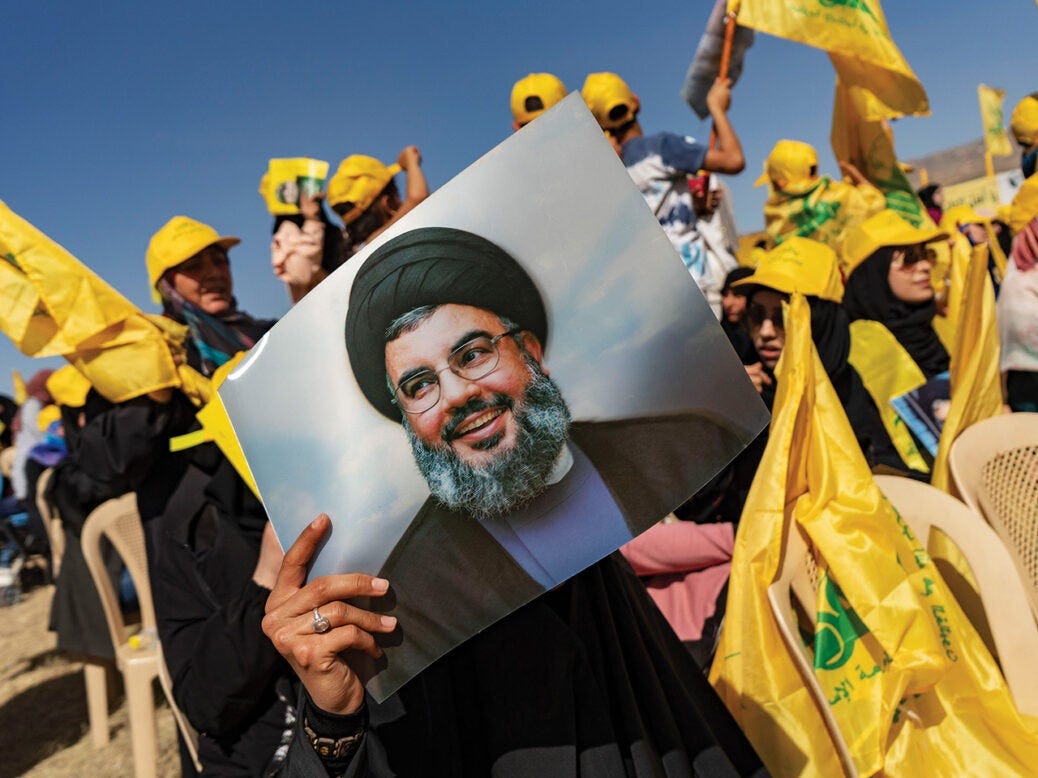


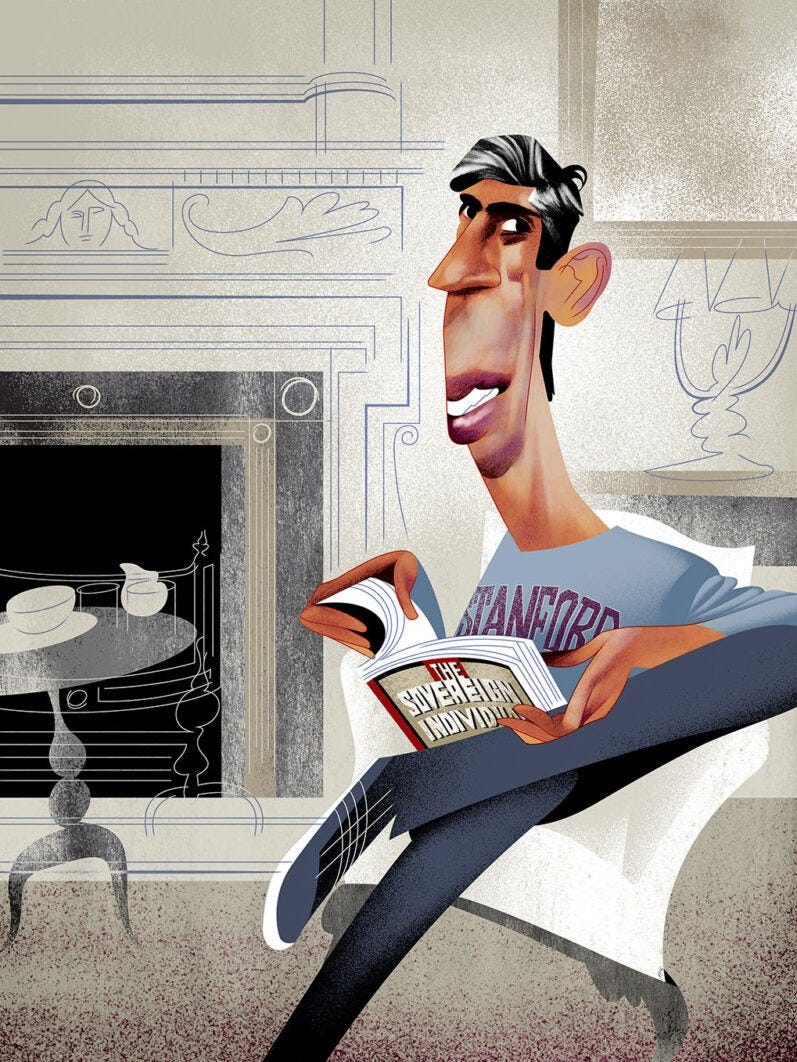

Excellent - specially on the continuing horror in the Middle East. Thank you